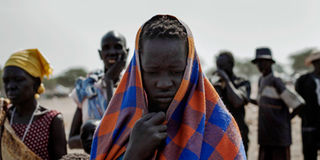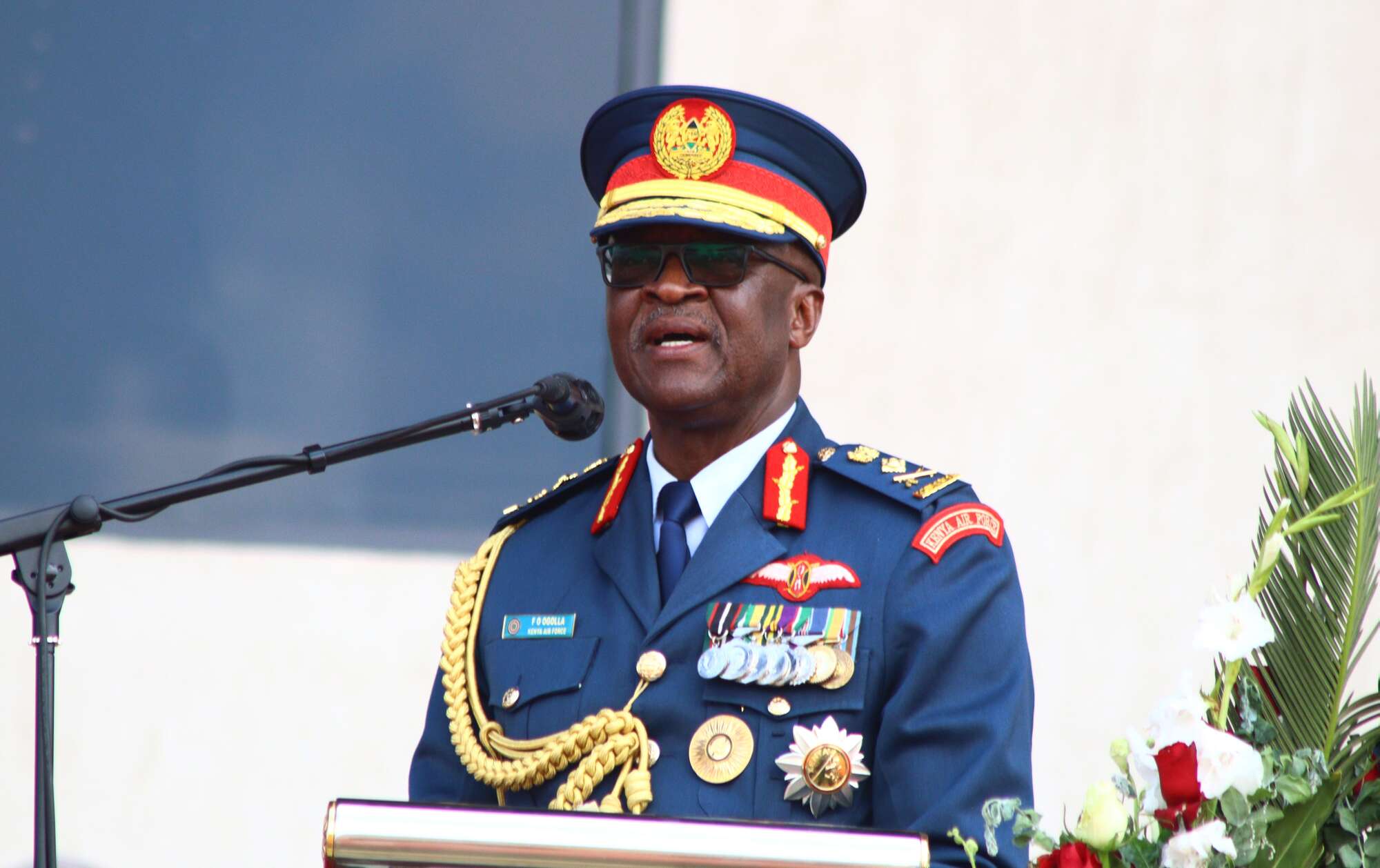UN role in S.Sudan under scrutiny

A girl stands at a temporary camp for Internally Displaced People in Mingkaman in South Sudan recently. PHOTO BY AFP
What you need to know:
Accusations. Sources say allegations of UNMISS’s sympathy with Dr Riek Machar’s rebellion are no longer confined to the diplomatic circles
Juba. The role of the United Nations in protecting civilians has come under very close scrutiny in South Sudan, where the government is battling rebels headed by former vice president Riek Machar.
The fighting, which erupted after a failed December 15 coup in Juba, has brought to the fore the behind-the-scene differences between the UN mission to the country (UNMISS) and president Salva Kiir’s government.
In 2012, the national army shot down a Russian-made UN plane in the restive Jonglei‘s Pibor County, where a rebel insurgency headed by David Yau Yau was raging.
The government said it had contacted UNMISS about the movement of the plane, which was suspected of delivering fire arms and ammunitions to Mr Yau Yau. UNMISS made no claim at the time, prompting the army to shoot the plane down.
Diplomatic row
But diplomatic squabble soon ensued when it turned out that the plane indeed belonged to UNMISS, having been a contribution from Russia to the peacekeeping and civilian protection operations in the world’s newest state. The saga was, however, blamed on miscommunication.
This time round, the allegations of UNMISS’s sympathy with Dr Machar’s rebellion are no longer confined to the diplomatic circles.
After the failed December 15 coup, allegations abound of the UN sheltering Dr Machar from eminent arrest and later accommodating him at the camp in Bor, the capital of Jonglei State.
Since then, mistrust has never settled between the mission and the regime.
At one instance, Information Minister Michael Makui Lueth was denied entry to the UNMISS camp in Bor, where some civilians had fled to.
Security sources alleged that rebel fighters, including former Jonglei State Local Government minister Duop Lam, had changed to civilian attires and sought refuge at the camp after Bor felt to the government.
A lot of military camouflages could be seen around the camp’s fence. Some UN vehicles with cut-off tops and used as military pick-up trucks could also be seen abandoned around the town. However, UN had complained that its vehicles were hijacked by the rebels.
Thus far, two UNMISS staff have been relocated from Juba over security fears following the allegations.
Last week, security officials detained UNMISS weapons at the Juba airport over clearance controversy. Security officials admitted that the mission’s Chief of Movement Control, Mr Matthew Carlton, had informed the Defence Minister of receiving small arms and ammunitions from Netherlands by air. But the note that came with the arms and munitions indicated that they were from Nepal, thus “raising suspicion”.
In this tense atmosphere of mistrust, suspicion and moral equivalence, it is hard to predict that the UN would, if it ever does so militarily, protect South Sudanese civilians by following the Congolese path, where it sided with the government to defeat M23 rebels.
Moreover, the government believes that Dr Machar – in the words of presidential spokesman Ateny Wek Ateny - is a puppet of the West.



